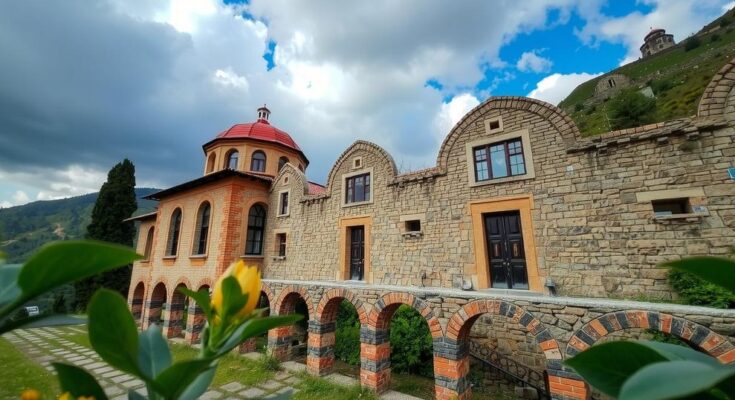International organizations are raising alarms about Azerbaijan’s ongoing destruction of Artsakh’s cultural heritage after the 2020 war and subsequent forced displacement of Armenians. They emphasize the urgent need for concrete actions to protect Armenian identity, as Azerbaijan systematically targets significant cultural sites. Despite international appeals, action remains lacking, intensifying fears of cultural genocide.
International organizations are sounding the alarm over the ongoing threat to Artsakh’s cultural heritage, calling for immediate action against Azerbaijan’s systematic cultural erasure. The “Geghard” Scientific Analytical Foundation highlights that since the 2020 Artsakh War and the 2023 displacement of Armenians, Azerbaijan has systematically targeted significant cultural landmarks, from war memorials to historical cemeteries and churches. These efforts not only involve physical destruction but also the alteration of Armenian monuments to align them with a false narrative. Calls for help have been directed towards UNESCO and various international cultural preservation entities, urging them to act against these violations of Armenian heritage. Esteemed scholars and organizations have united in denouncing the cultural genocide, stressing that the destruction of Artsakh’s heritage is part of a broader strategy to erase Armenian identity. Despite appeals and some acknowledgment from international bodies, decisive action remains frustratingly absent. A UNESCO statement from November 2020 reflected concerns about cultural heritage preservation, with the organization ready to assist if permitted by Azerbaijan. Yet the nation continues to deny entry to international observers, reinforcing its stance of non-interference under the guise of sovereignty. This refusal has raised critical concerns about Azerbaijan’s commitment to respecting cultural landmarks valuable to both Armenians and global heritage. Statements from the International Council on Monuments and Sites (ICOMOS) and other scholars have condemned the ongoing destruction, labeling it as a severe breach of international cultural conventions. Genocide prevention experts argue that targeted cultural destruction implies an intent to eradicate Armenian identity in the region, linking it to broader patterns of cultural genocides witnessed throughout history. Reports from organizations like Human Rights Watch have shed light on the systematic devastation of cultural sites since the Nagorno-Karabakh conflict, calling for accountability towards those responsible. The ongoing neglect by international organizations to enforce their resolutions is alarming, as Azerbaijan’s approach to cultural heritage continues unchecked, threatening to erase centuries of Armenian history from Artsakh.
The situation surrounding Artsakh’s cultural heritage has escalated following the 2020 conflict and the forced displacement of Armenians. Azerbaijan’s state-led campaign against Armenian cultural sites has drawn significant attention from international cultural organizations. Despite appeals for intervention, Azerbaijan’s refusal to allow inspections intensifies concerns about the preservation of cultural heritage critical to Armenian identity.
The calls from international organizations and cultural experts highlight the urgent need for proactive measures to protect Artsakh’s cultural heritage from ongoing Azerbaijani destruction. As cultural landmarks face erasure, the ignored resolutions further jeopardize the historical identity of Armenia. Active involvement from global bodies is essential to prevent further cultural genocide in the region and hold those accountable for their actions.
Original Source: armenpress.am



